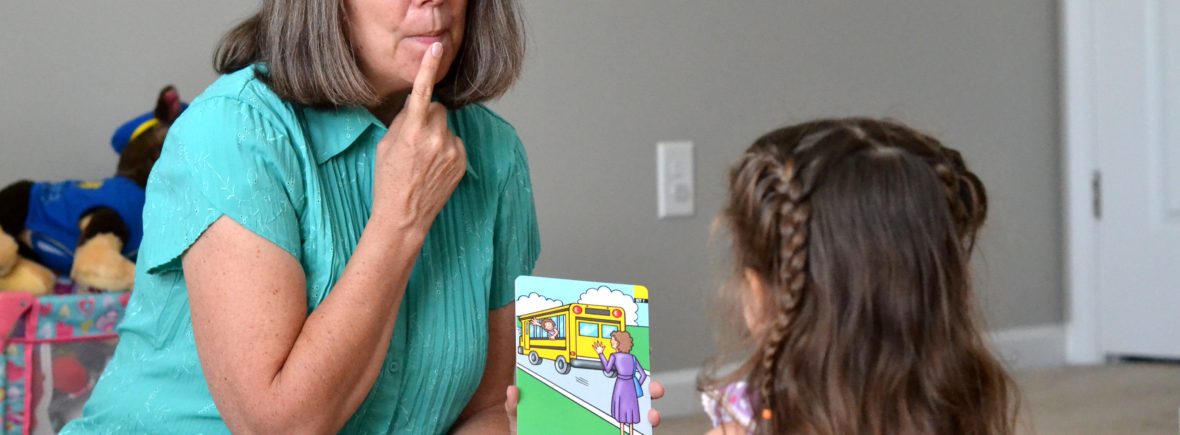Most children make some mistakes as they learn to say new words. A speech sound disorder occurs when mistakes continue past a certain age. Every sound has a different age when the child should make the sound correctly. Speech sound disorders include problems with articulation (making sounds) and phonological processes (sound patterns).
Phonological Disorder
While some children may have difficulty with one or two sounds, other children have difficulty with a whole group of sounds that share similar characteristics. These are known as phonological processes. Phonological processes are a normal part of speech development, however, when these error patterns persist beyond developmental norms, a child is described as having a phonological process disorder.
Examples of phonological processes include:
- Syllable deletion: the child leaves out the unstressed syllables in words e.g. says “nana” for banana
- Final consonant deletion: the child leaves off the ending consonant in words e.g. says “da” for dog.
- Reduplication of sounds or syllables: the child may say “baba” for bottle or “gog” for dog.
- Velar fronting: the child substitutes all sounds made in the back of the mouth like “k” and “g” for those in the front of the mouth like “t” and “d” e.g. saying “tup” for cup or “dame” for “game”.
- Consonant cluster reduction: the child may simplify consonant clusters (i.e., consecutive consonants in a word) so that string becomes sting or even sing.
- Affrication: a child may substitute an affricate (ch or j) with a nonaffricate so that “door” becomes “joor”.
- Assimilation: the child substitutes one consonant sound so it sounds like another sound in the word like “bub” for “bus”.
- Denasalization: the child may substitute nonnasal sound consonant like /b/ or /d/ for a nasal consonant like /m/ or /n/ like “doze” for “nose”
- Initial consonant deletion: the child leaves off the initial consonant in a word so that “bunny” becomes “unny”.
Some speech sound errors can result from physical problems, such as:
- developmental disorders (e.g. Autism)
- genetic syndromes (e.g., Down syndrome)
- hearing loss
- illness
- neurological disorders (e.g., cerebral palsy)
Children who experience frequent ear infections should have their hearing checked as this can negatively impact articulation of speech sound production.
Speaking with an accent and/or dialect is not a speech sound disorder

